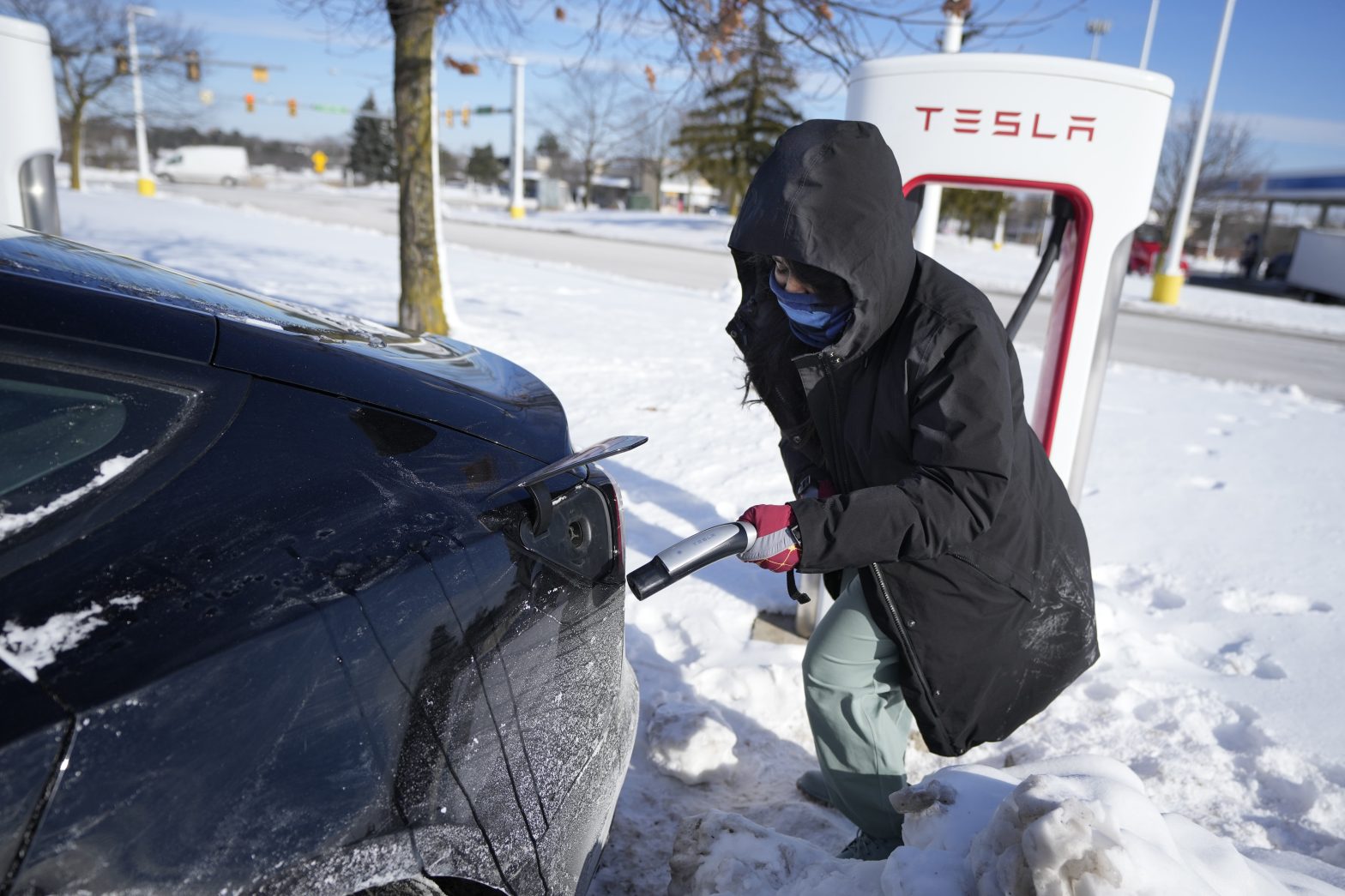Cold Hard Facts: Winter EV Charging Woes Prove Need for Consumer Choice and Smarter Policy
COMMENTARY

In the United States, transportation accounts for close to 30% of U.S. greenhouse gas emissions. Therefore, if we’re going to achieve our carbon reduction targets, addressing and solving the problems associated with transportation sector-based carbon emissions is imperative.
It has also been quite cold across the country and electric vehicle owners are experiencing a chilling dose of reality as they confront the cold hard facts and realize their vehicles cannot be as efficiently charged, or driven as reliably, to the ranges they had expected.
With these facts in mind, regulatory oversight and consumer needs are reaching a critical juncture when it comes to the vehicles we drive. With the passage of the Choice in Automobile Retail Sales Act of 2023 by the U.S. House of Representatives, comes legislation aimed at supporting consumer choice and a level of autonomy that seeks to limit the Environmental Protection Agency’s authority over emissions standards.
As expected, there is significant discourse, both in support and opposition.
The act would preserve consumer choice. In a market that is increasingly diverse in terms of automotive technologies, ranging from internal combustion engines using various fuels to EVs, consumers must have the freedom to choose the vehicles that best suit their needs and preferences.
Among supporters of the act are organizations representing the fuels marketing industry, including the Society of Independent Gasoline Marketers of America, the National Association of Convenience Stores and the National Association of Truckstop Operators. These organizations stress the importance of a technology-neutral approach. They argue that by allowing the market, rather than mandates, to drive innovation, the development and implementation of a diverse array of technologies and new low-carbon renewable and liquid e-fuels, will all contribute significantly to the reduction of carbon emissions.
So, the act encourages a comprehensive analysis of environmental impacts, moving beyond a singular focus on tailpipe emissions, and considers the complete lifecycle carbon intensity of vehicles. Lifecycle carbon analysis is a critical measurement concept that offers a much-needed level of transparency, since zero tailpipe emission measurements do not account for the fact that EVs are also responsible for carbon emissions, such as those generated from battery and electricity production.
Given the focus on the impact of climate change, the debate surrounding how to best balance environmental protection and individual freedoms is understandable.
The proposed EPA rule — Multi-Pollutant Emissions Standards for Model Years 2027 and Later Light-Duty and Medium-Duty Vehicles — has resulted in controversy because it would effectively restrict the types of vehicles automakers would manufacture and be able to make available to consumers. The Alliance for Automotive Innovation addresses that concern and notes that EPA’s proposal, for example, completely writes off plug-in hybrid electric vehicles. This further reduces consumer choice and risks pushing automakers into non-compliance with unachievable requirements.
The act would address these concerns by preventing the EPA from finalizing and implementing a rule that essentially mandates exclusive EV production. A range of testimony and comments previously submitted to the EPA collectively note that the proposed rule overly prioritizes EVs without considering the feasibility of automobile electrification transition timelines and the financial and resource challenges for automakers that are associated with a rapid shift to EVs.
While the act faces an uncertain future in the Democratic-controlled Senate, and the White House continues to maintain opposition to it, its passage in the House highlights a growing awareness of the need for a more practical and science-based approach to automotive regulations that ensures those regulations are realistic and achievable.
Despite tax credit incentives, consumers are now voicing concerns that are reflected in disappointing ownership experiences resulting in slowing EV adoption, building inventories and plummeting EV resale values. The act acknowledges the imperative of taking into account a range of concerns and provides a unique opportunity to consider a more comprehensive approach to transportation energy and related GHG reduction policies built around control of emissions rather than vehicle fuel restrictions.
Government mandates simply aren’t suitable for a diverse automotive and consumer landscape, and striking a balance between environmental goals, economic viability and consumer choice, including addressing pressing issues of transportation equity, is no easy task.
The CARS Act provisions present the opportunity to drive a comprehensive market-based dialogue, not only at the federal level but in state legislatures, like California and Connecticut, where automakers and consumers encourage a better understanding of automotive technology, recognition of current EV limitations and application of pragmatic policymaking.
Michael J. Roman is senior fellow, American Council for Capital Formation and president, CertainPoint Strategies, L.L.C. in Washington, D.C. Roman is an active advocate for the issues written about above. He can be reached on X.

























